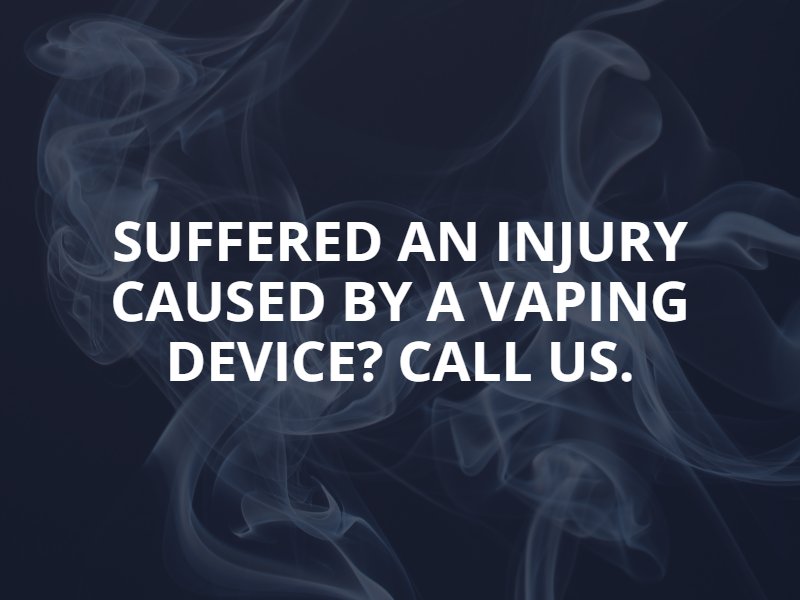Vaping is the practice of inhaling aerosol through an electronic cigarette or vape device. Most vaping aerosols contain nicotine, flavoring and various chemicals. Millions of people currently use vapes and other e-cigarette products regularly. Unfortunately, vaping and e-cigarettes can pose many dangers to consumers. To decrease the number of people using vaping devices, California and other states have changed their related laws and regulations.
E-Cigarette Laws in California
Until recently, California is where some of the largest vaping and e-cigarette companies had their headquarters, including JUUL. State lawmakers did not let this interfere with their plans to crack down on e-cigarette laws, however. California became the second state in the US to implement several new laws and restrictions meant to discourage the sale and use of e-cigarette devices.
- E-cigarette products now classified as tobacco products. Gov. Jerry Brown signed new legislation to classify vaping and e-cigarette products as part of the tobacco industry. This made e-cigarettes subject to the same state tax laws as cigarettes.
- California raised the smoking age to 21. Customers who wish to buy tobacco products, including e-cigarettes and vapes, must be at least 21 years old in the State of California, with a concession for active military members.
- Vape product registration requirements. California also passed a new law requiring the inspection and registration of vape products before a vendor can sell them. This comes with additional fees for vendors to keep their e-cigarette and vape shops open.
- Ban on vaping on school grounds. It is now illegal for any person to vape or use an e-cigarette device on school properties, as well as in workplaces and public places. The ban extends to bars, warehouses and hotel lobbies.
Experts predict California’s new vaping laws and restrictions will have a major effect on the tobacco and vaping industries in the state. The age change alone could drastically reduce e-cigarette use among teens – a demographic highly prone to vaping. In 2018, 20.8% of high school students surveyed said they currently used e-cigarettes. California’s new laws could change things for the future of vaping products.
What States Have Banned Vaping Products in the U.S.?
Although California’s new vaping laws enact major changes, some states have taken their stance against e-cigarettes even further by banning these devices. As the death toll connected to vaping and e-cigarette devices continues to rise, several states have met the challenge with sweeping legislation to limit the sales of e-cigarette products or ban them altogether. Michigan was the first state to limit e-cigarette sales with an emergency ban on all flavored vaping products other than tobacco. The ban ultimately failed, however, when retailers took their case to court.
New York then became the first state to successfully implement a ban on flavored vaping products. Massachusetts followed up with an even stricter ban – a four-month-long ban on all sales of marijuana and tobacco vaping products, regardless of flavor. Rhode Island, Montana, Washington and Oregon were the next states to pass temporary restrictions on e-cigarette products. Most of these bans arose due to the development of EVALI, a vaping-related lung illness that took 68 lives as of the latest count.
FDA Ban on Some Flavored Vaping Products
EVALI also led to new regulations on a federal level. In January 2020, the US Food and Drug Administration (FDA) announced a ban on most vaping products containing flavors other than tobacco and menthol. The announcement specifically bans flavors that appeal to children, such as fruit and candy. E-cigarette and vaping companies had 30 days to abide by the policy and stop the manufacture and sale of flavored e-cigarette cartridges. These companies must also take reasonable measures to prevent child access to e-cigarettes.
The FDA’s ban is an aggressive strategy to halt the epidemic of teens using e-cigarettes, according to FDA officials. Companies that ignore the FDA’s rules will face regulatory action. If you or a loved one has suffered an injury or been diagnosed with an illness caused by a vaping device, contact our vaping lawsuit attorneys for legal advice on how you could recover compensation for your damages.
